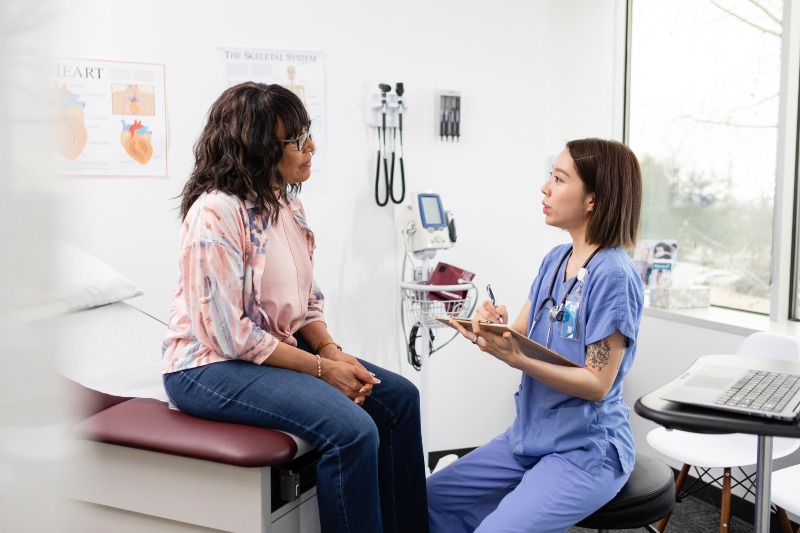Top 7 Questions You Should Ask Your Cardiologist
When it comes to managing your heart health, knowledge is just as important as treatment, and asking the right questions can make all the difference. By inquiring about your individual risk factors, the rationale behind each diagnostic test, potential side effects of medications, and realistic goals for lifestyle changes, you gain clarity and ownership over your care plan. At Cardiac Solutions, serving Sun City, Glendale, and Peoria, AZ, we encourage you to come prepared with a list of concerns. Open, proactive communication not only strengthens the partnership between you and your cardiologist but also ensures every recommendation is tailored to your needs.

Why Asking the Right Questions Matters
A cardiology appointment can sometimes feel overwhelming, especially when you’re faced with unfamiliar symptoms, complex test results, or a stack of medical forms. By knowing which questions to ask—such as what each test measures, why certain treatments are recommended, and what warning signs to watch for at home—you can transform that anxiety into actionable insight. Clear communication helps you and your care team outline realistic goals, weigh the benefits and potential risks of different therapies, and develop a follow-up plan that fits your lifestyle. Ultimately, taking the time to understand your heart health empowers you to make informed decisions and adopt long-term strategies for improvement and prevention.
Top 7 Questions for a Cardiologist
Being prepared with cardiovascular questions allows your cardiologist to provide more tailored information. These key topics cover diagnosis, lifestyle, family history, and treatment. Here are seven essential questions to ask during your next cardiology visit:
-
What is the current state of my heart health?
Begin by asking for a clear overview of your heart’s condition. Whether you’ve undergone testing or are new to cardiac care, this question helps you understand where you stand and what the next steps should be.
-
What risk factors should I be aware of?
Some risks may be specific to your lifestyle or medical history. Others, like high blood pressure or high cholesterol, may develop quietly over time. Identifying risks early gives you the opportunity to act before problems progress.
-
What symptoms should I monitor closely?
Not every heart condition presents the same way. Your cardiologist can help you understand which symptoms are harmless and which may signal something more serious. Typical warning signs to watch for include chest pain or pressure, shortness of breath during normal activity, unexplained fatigue or dizziness, and palpitations or irregular heartbeat. Knowing what to monitor can help you avoid unnecessary panic and recognize a true emergency if it arises.
-
What are my treatment options and side effects?
Whether your cardiologist recommends medication, lifestyle changes, or procedures, it’s important to understand each option. Ask how each treatment works, what side effects are common, and whether there are alternative strategies. This question allows you to weigh benefits and risks.
-
Are there lifestyle changes I should make?
Lifestyle plays a major role in heart health. From diet and exercise to stress management and sleep, your daily habits matter. Your cardiologist may suggest specific changes that support your condition or reduce the risk of progression. Lifestyle areas to address might include improving nutrition and reducing sodium or unhealthy fats, incorporating regular physical activity appropriate for your condition, limiting alcohol and avoiding tobacco products, managing chronic stress, and improving sleep quality.
-
What screening tests or follow-ups will I need?
Ongoing monitoring is often essential for managing heart health. Your cardiologist can explain the timeline for diagnostic tests such as echocardiograms, EKGs, stress tests, or blood panels. Knowing what to expect in terms of follow-ups helps you stay on track.
-
Should I be concerned about my family history?
Many heart conditions have a genetic component. If you have close relatives with heart disease, your cardiologist can assess how that influences your risk. In some cases, this may lead to earlier or more frequent screenings.
What to Expect at a Cardiologist Visit
Whether it’s your first visit or a follow-up, knowing what to expect at a cardiologist visit helps ease anxiety and allows you to prepare. The appointment typically begins with a review of your medical history and symptoms, followed by a physical exam and diagnostic tests if needed. Coming prepared with your questions and a list of current medications ensures you get the most from your visit. During the visit, your cardiologist may:
- Review your current medications and health conditions
- Perform or order heart-related tests
- Discuss your risk factors and lifestyle habits
- Provide recommendations or adjust your treatment plan
Be Your Own Advocate
Managing heart health is about being involved, informed, and empowered. By asking meaningful questions and actively participating in your care, you can work more effectively with your cardiologist to prevent disease and maintain a better quality of life.

Schedule a Consultation With Cardiac Solutions
If you’re preparing for a cardiology appointment or need answers to your heart health questions, Cardiac Solutions is here to help. Serving patients in Sun City, Glendale, and Peoria, AZ, our team of experienced specialists provides compassionate and personalized cardiovascular care. Contact us today to schedule a consultation and learn more about what matters most for your heart health.
